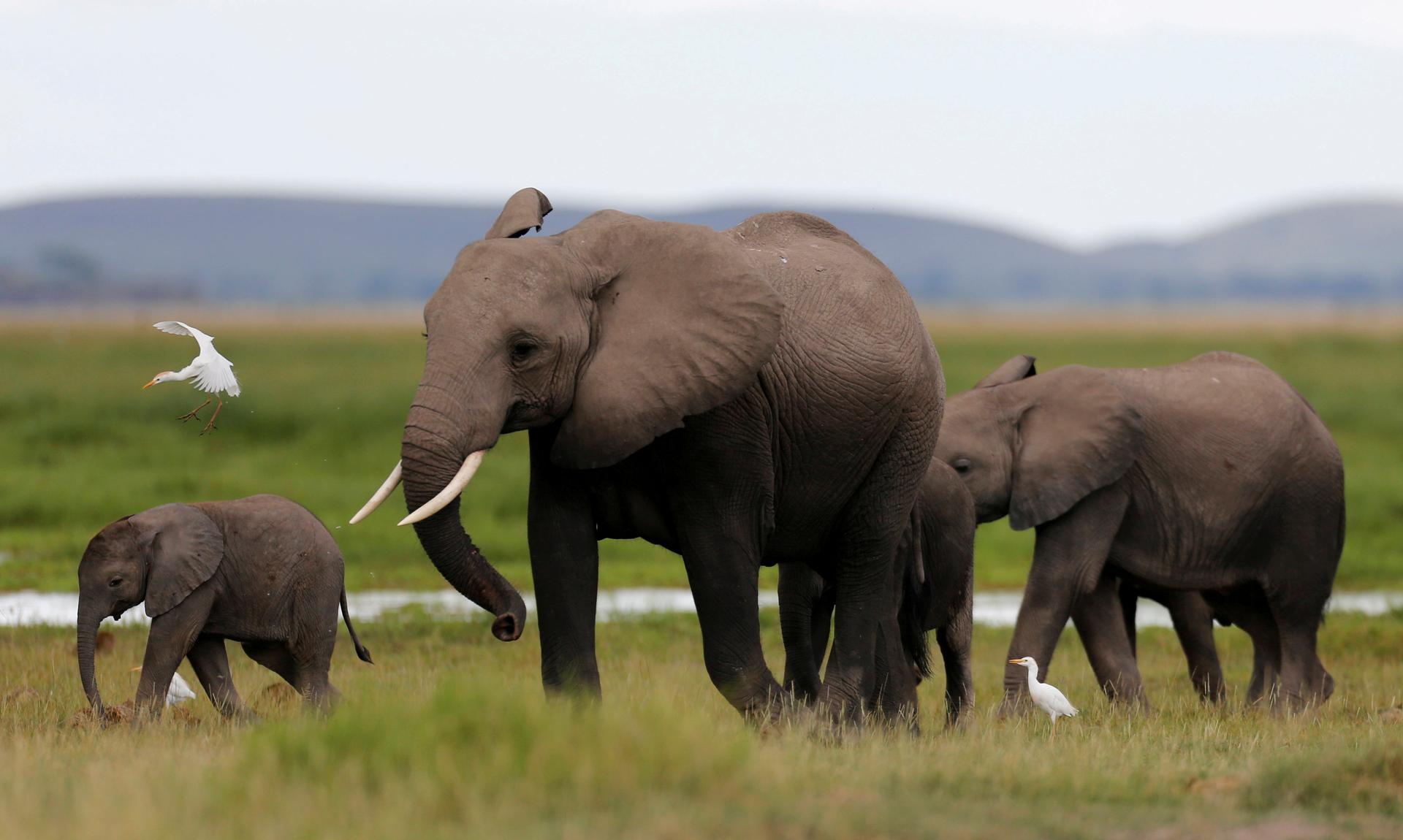A family of elephants in Kenya's Amboseli National Park.
Trafficking in ivory and rhino horn is a scourge of Kenya's tourism-based economy.
This week that economy took a big hit.
Esmond Bradley Martin, the American conservationist and leading ivory trade investigator was found stabbed to death in his Nairobi home Monday. Four suspects have been arrested in connection with the murder.
"He was not just an asset for Kenya, he was an asset for pachyderms where ever they were, elephants and rhinos," says Kenyan Paula Kahumbu, who leads the conservation group Wildlife Direct, and worked closely with Martin. "There is this real sense of loss for the nation and for our wildlife."
Kahumbu says Martin was relentless in his pursuit of illegally traded ivory and rhino horn.
"He went into places where these things were happening very openly, in markets, for example, in China and Hong Kong where ivory is simply being sold in shops because it was legal," she notes. "But he also went where it was being sold in places like Angola or Congo."
Martin worked extensively in Asia, investigating ivory and rhino horn trafficking in China, Vietnam, Laos and most recently Myanmar.
"He was trying to understand how the international agreements were translating into actions on the ground, in terms of factories where they were carving ivory, or shops where ivory was being retailed," Kahumbu says.
Martin was among the first to recognize that the volume of illegal ivory trade in the US was second only to China.
He took immense personal risk, in no small part because he did not blend into many of the settings where he investigated trafficking. Kahumbu says his large stature and shock of white hair made him stand out.
"He would openly go into shops to ask questions, take photographs, gather data and he believed that people were very open to him because he was honest about what he was doing," she notes. "He wasn't carrying hidden cameras or anything like that."
